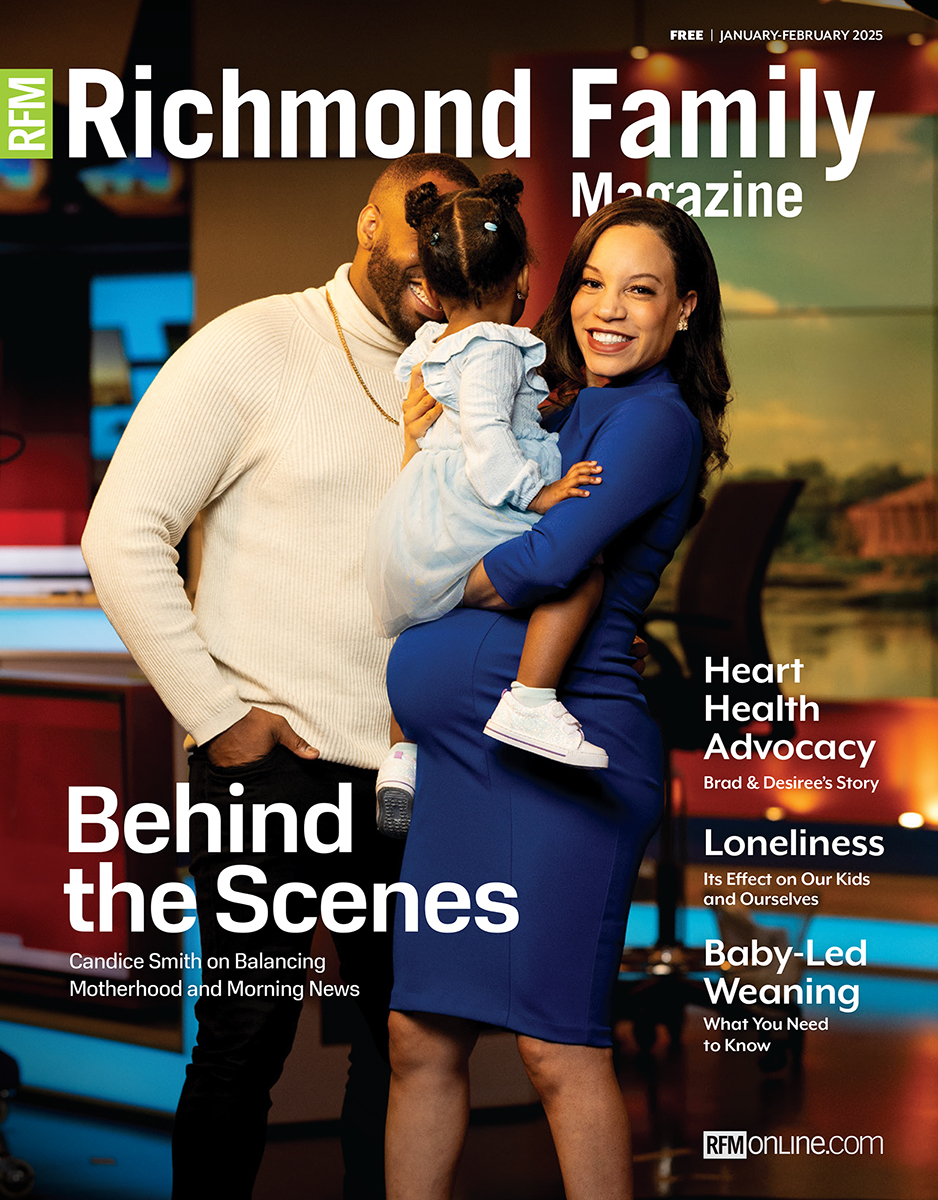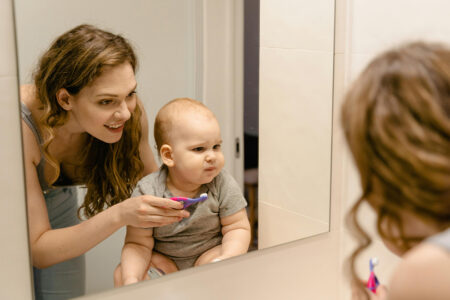My daughter took a bite of her oatmeal and glared at me. “Is that your breakfast?”
At four, she had already mastered the art of raising one eyebrow in judgment. Her tiny arms were draped over her chest. At that moment, she looked more like my mother than ever.
I poured my third cup of coffee and considered my next step. I know, I know – many people say breakfast is the most important meal of the day. But I am not a breakfast person. Never have been. I married one, but his work schedule always made breakfast more a matter of taste than timing. While Daddy could always be counted on for flipping pancakes and supervising family breakfast, he was really more of a breakfast-for-dinner kind of guy. It was just me, the little nutrition cop, and her two-year-old sister in the kitchen this fine morning.
I grabbed a banana, poured myself some milk, and sat down with my darling daughters to enjoy breakfast at the table. My career as an influencer had begun.
Of course, I’d always accepted that one of my biggest responsibilities as a parent would be to lead by example. The older and more observant my girls became, the more I appreciated this. And that morning in particular, something had clicked. Eating that banana with a small side of resentment, it hit me just how closely my kids would be watching me and how much influence my actions would have on theirs. It was daunting.
Understandably, in this image-centric culture we’ve created, the need for modeling good behaviors in our approach to nutrition and wellness has become more important than ever. If you’re the parent of girls (or women-children as my husband calls them), like me, you can factor in a whole host of related challenges like disordered eating, body dysmorphia, obsession with cosmetic surgery, the misconceptions of the perfect body, and the ubiquity of social media.
Not that you’re off the hook with boys. My husband jokes that before we got in a family way, he could do all his grocery shopping at 7-Eleven. Certainly, not a role model for nutrition, but is that the message the fourteen-year-old soccer player in the family is receiving from you? How about from his meal-skipping, energy drink-guzzling father?
When it comes to influencing our kids and modeling behaviors for them, there are conscious choices we can make. First, we need to constantly remind our kids that bodies come in all shapes and sizes – and mean it. Stop equating being thin with being healthy. Fat people are healthy, too. Stop making a big deal about the six pounds you gained or recently lost. Or the extra pounds someone else is carrying around after the holidays. Or your child’s friend with skinny legs or teammate with big boobs. It’s time to show our bodies some grace – or at least fake it convincingly when our kids are within earshot.
This is what I’ve learned (the hard way) from my mother and from parenting my children over the past twenty-something years: Keep your opinions about other people’s physical appearance (body features, hair, tattoos, piercings, all of it) to yourself. Train yourself to be body neutral and say nothing and/or scroll on by on whatever social media platform you’re using. If you’re that adult who is constantly commenting on athlete’s bodies (especially women’s) while watching sports, just stop.
Where dieting is concerned, try not to show or tell your kids that swearing off any one food group is the answer to your personal struggle with weight. Do you really think you’re going to forego bread forever? With your kids, remember foods are not good or bad. Brownies are just as good as broccoli. Period. And don’t get me started on scales. We need to stop weighing ourselves every day or even weekly. Just get rid of the scale (we never owned one!). Pack it up with the jeans you’ve been saying you’ll get back into one day and go straight to Goodwill.
When I first realized the scrutiny under which I would be operating in my daily life as a parent, it genuinely changed the way I moved through the world. I set about demonstrating the kinds of behaviors I wanted my daughters to emulate: making dinner for sick friends and neighbors; showing compassion to all; and listening deeply to understand instead of to talk. And one of the most important behaviors on my list? Not offering my judgment on other people’s looks or lives.
I was serious when I said we might have to fake some of these things if we’re not feeling it yet. After all, many of us were raised in a culture where the focus was on our looks and our weight. But this is your family now, and you’re the carrier of the culture. Think of it as your chance to be the best kind of influencer – the kind your kids need now more than ever. The real trick is to sell it, then hope and pray the kids will buy in.







